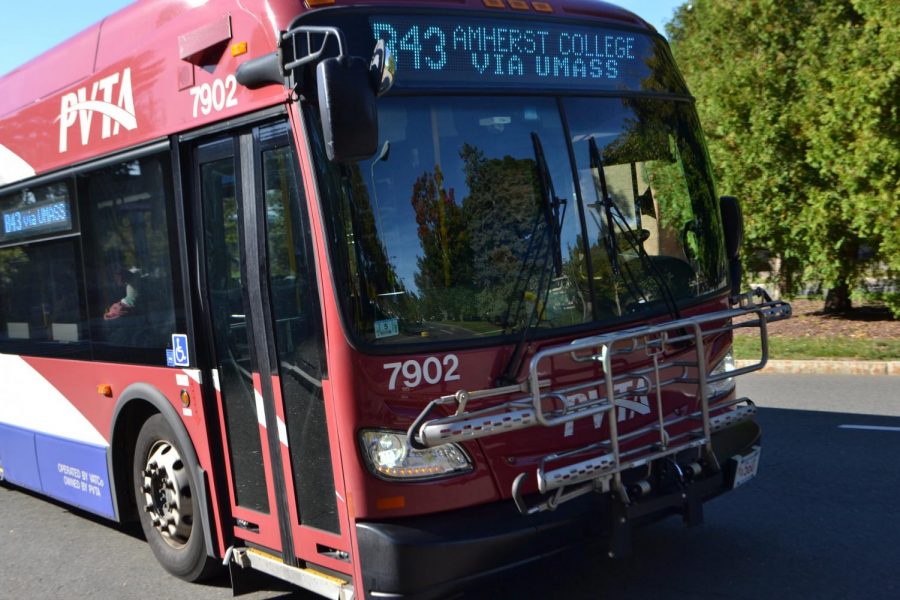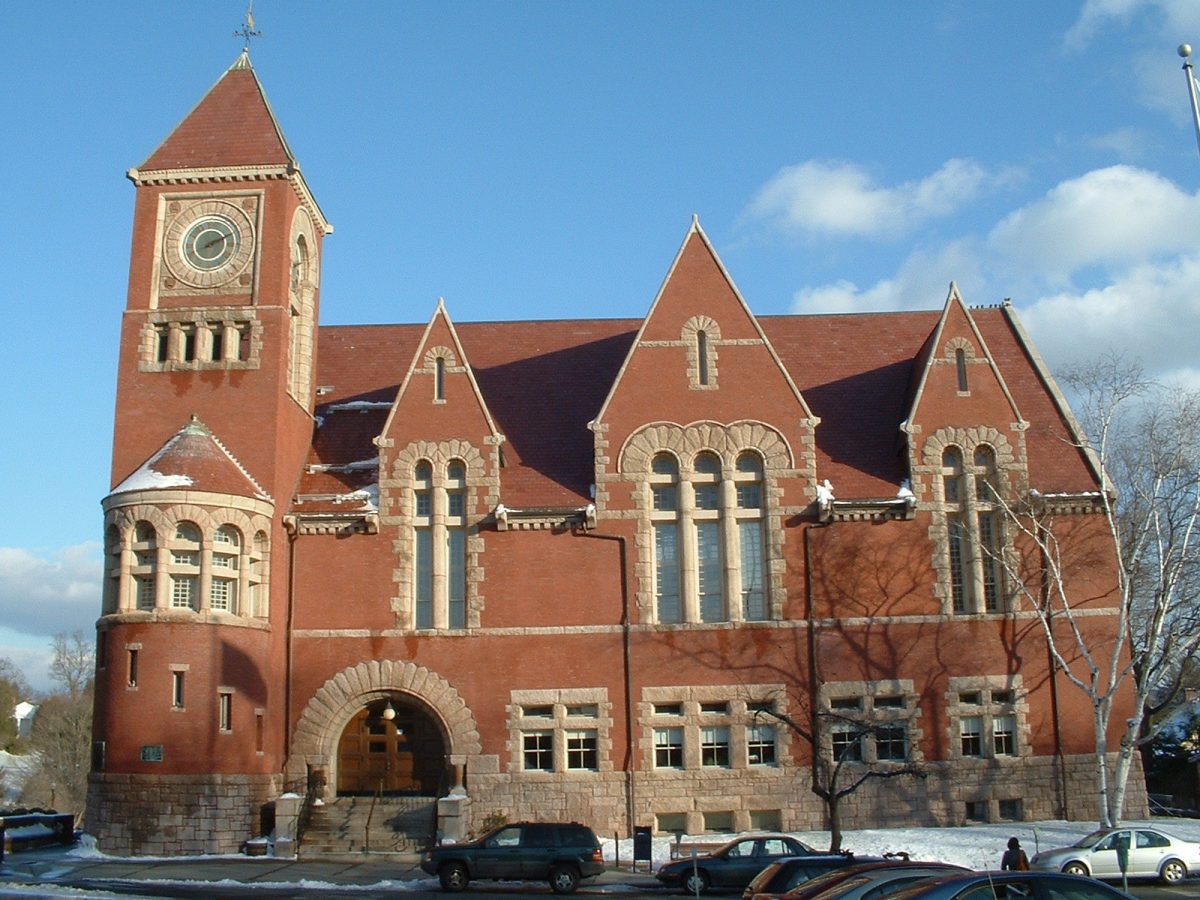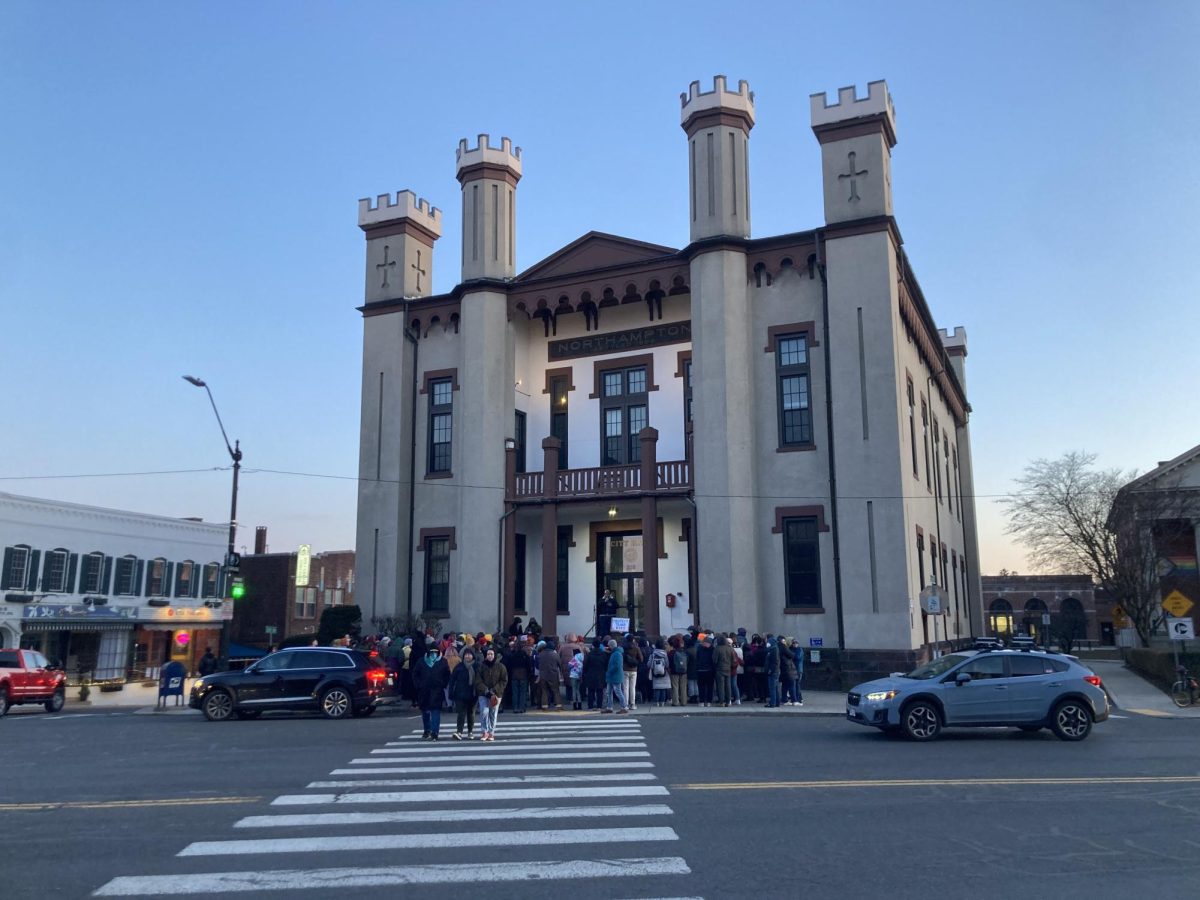Members of the Task Force on Regional Transit Authority Performance and Funding spoke about the future of the Massachusetts Regional Transit Authorities and received feedback on transportation needs from elected officials and community members on Friday in the Campus Center at the University of Massachusetts.
This was the third public meeting of the RTA Task Force of the week where their report on performance and funding was explained to the public and discussed, with previous meetings taking place in Worcester and Hyannis.
Northampton Mayor David Narkewicz opened the session by welcoming attendees and thanking members of the task force for their work.
As chair of the Pioneer Valley Transit Authority Advisory Board, Narkewicz said, “I’m especially pleased that you’ve addressed one of the key issues that not only PVTA but many of the RTAs face and that, of course, is funding and sustainable funding that allows us to continue to provide this vital transit service to the people who live up and down this valley and throughout the Commonwealth of Massachusetts.”
Task Force Chair and Massachusetts Department of Transportation Rail and Transit Administrator Astrid Glynn then spoke about the purpose of the Task Force and their recommendations, as written about in the report.
“We were created by the legislature last year, and the legislature gave us a very ambitious, but in a way simple, charge,” Glynn said. “We were given the charge to investigate how the RTA can best provide and improve transit services that meet identified community needs; how they can best conduct regular service planning to maximize ridership with available resources; and how they can ensure that fares, local contributions and other revenue cover inappropriate share the cost of service.”
From the Task Force’s creation in October 2018 to a week ago, it met 19 times to discuss the 15 RTAs in the Commonwealth. Over the span of several months, they created a report regarding the future of RTAs and how services can be improved and innovated. Their research was organized into five sections: investment and performance, accountability, service decisions, quality of service and environmental sustainability.
One recommendation made was RTAs look at a “modest” fare increase every three years.
“We do this for a couple of reasons,” Glynn explained. “One, fares are an important part of the overall pattern for funding RTAs. Second, a small, predictable increase is a lot less painful than a large, unpredictable increase.”
Before the fare increases period, the Task Force urges an equity analysis and ridership impact report to be completed so the increase does not disproportionally on some riders or an undue impact on ridership.
Environmental sustainability was one of the most important things highlighted by the Task Force.
“In addition to urging that all buses and vans purchased after 2035 be zero emissions, we want to work with the RTAs to determine what mode shifts would be required to meet the Commonwealth’s climate change goal and how can we help create a sustainability plan with the RTAs,” Glynn said.
Elected officials were then invited to comment on the report and discuss their thoughts.
Rep. Mindy Domb began by discussing performance target groups and suggested food pantries, community health centers, senior centers, community colleges, public universities, the courts and jails.
“These are places that folks are going to need transportation to,” Domb said. “I used to be the executive director of the Amherst Survival Center. People come to the food pantry, they come to get a meal, they come to get free health care, they need to make sure that there’s a bus that takes them there.”
She also responded to the Task Force’s plan for better publicity through social media by bringing up that not everyone in this geographical region has Internet. She then commented that not everyone speaks English and they should consider translating materials to reach more of the population.
Rep. Natalie Blais spoke about the lack of evening and weekend service in her 19 towns.
“For these communities. It’s life changing, it’s life altering, it’s life stopping,” Blais said.
Blais went on to explain, “If you don’t have a vehicle and you need to do your grocery shopping, and you’re doing that on a Saturday or Sunday, I want to know how you’re getting to the grocery store. Because people in my district who don’t have a car, and who were reliant upon public transportation, do not have that option. And that is not okay. We are leaving western Massachusetts, rural Massachusetts behind when it comes to economic mobility. And we need to be doing better.”
Several more officials spoke, continuing to bring up cut routes, the lack of evening and weekend service and better connectivity throughout the western Mass.
Robert Kearns, an environmental science senior, brought the perspective of a UMass student to the discussion.
“I think there should be incremental increases so that we don’t see the cost of services, but I see an equity issue where we’re pitting UMass students against low income people of color down in Springfield,” Kearns said. “We have to cut routes for two different transit-dependent people. But there’s a disparity in that those people have to pay fares, we don’t know.”
“So that has to be looked into, how student fees can be increased incrementally, not too much, but to help prevent service cuts and not to go against or hurt transit-dependent riders in Hampden counties and other parts of the PVTA service area.”
Written comments about the report draft can be submitted by email to [email protected] until 5:00 p.m. on Friday, March 29.
Abigail Charpentier can be reached at [email protected] and followed on Twitter @abigailcharp.





















Dr. Ed • Mar 25, 2019 at 2:51 pm
UMass Transit was started by the UM Student Government and the biggest mistake the SGA made was giving that funding authority to the administration. Once the SGA (and GSS) no longer was voting to fund the “free” buses each year, UM Transit stopped caring about what students thought.
.
That’s how we got the dangerously-overloaded buses on Friday & Saturday nights, that’s how they are able to eliminate stops, and not really meet student needs.
.
The larger issue of the PVTA is that it is still running the routes of trolley companies that went bankrupt in the 1040’s & 1950’s. Well, lots of things have changed since then, starting with there no longer being steam engine trains on what is now the Norwottuck Rail Trail.
amy • Mar 25, 2019 at 1:14 pm
PVTA in amherst is one of the worst bus systems i have ever been on. It’s constantly jammed with people, it’s rather pathetic considering amherst is a small town and Northampton is basically a small town although it’s technically a city.
They should cut services instead of to waste more money. It’s a total waste of taxpayer’s money. It’s not that hard to get a car. I got a car for a 100 dollar down payment,. If you can’t afford a car, then move to a big city like boston or maybe you should work harder and stop expecting taxpayers to subsidize your transportation.